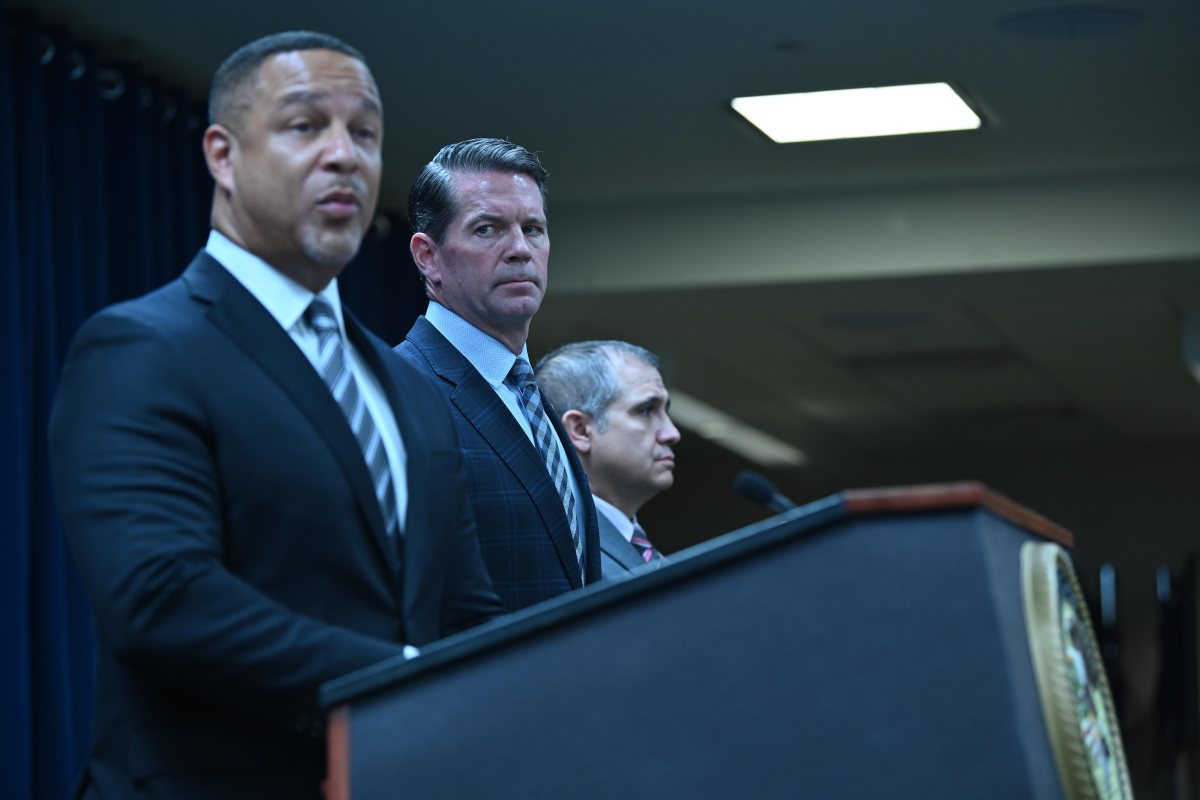Join Robert Caro at the Dan's Papers Literary Festival

Author Robert Caro is a keynote speaker at the Dan’s Papers Literary Festival at Guild Hall, where he is also signing copies of his Pulitzer Prize-winning 1974 book, The Power Broker: Robert Moses and the Fall of New York, on Thursday, September 1.
The esteemed journalist and writer of nonfiction, who has a home in East Hampton, is among the very best at his craft, and we’re lucky to have him. As the Literary Festival gets underway at 4 p.m., Caro will deliver the keynote speech at the 5th Annual Dan’s Papers $10,000 Literary Prize for Nonfiction Gala Awards Ceremony. Caro’s speech is focused on the Emerging Young Writers Prize, which will be followed by a keynote speech for the main Dan’s Literary Prize contest by fellow Pulitzer winner Carl Bernstein.
Caro will then join Bernstein and other Dan’s Papers Literary Festival authors—including Daniel Simone, Dick Cavett, Jean Shafiroff and Dan Rattiner—at the inaugural Literary Luminaries Book Signing. Finally, Caro will join most of the other authors at Serafina of East Hampton for a special VIP Authors Dinner at 7 p.m.
If you’re not familiar with Robert Caro, you should be. He’s won two Pulitzer Prizes in Biography; three National Book Critics Circle Awards, for Best Nonfiction Book of the Year and Best Biography; the National Book Award; the Francis Parkman Prize, countless other major literary honors, including the Gold Medal in Biography from the National Academy of Arts and Letters and the National Humanities Medal, awarded by President Barack Obama.
With the exception of The Power Broker, Caro’s bibliography reflects 30 years of work writing about the life of America’s 36th president, Lyndon B. Johnson. His The Years of Lyndon Johnson series, which began with The Path to Power in 1982 was supposed to be a trilogy, but Caro eventually added a fourth book in 2012, and he announced plans in 2011 to pen a fifth Lyndon Johnson book. Below, we share the author’s books and the publisher’s writeup about each.
The Power Broker: Robert Moses and the Fall of New York (Vintage, 1974)
One of the most acclaimed books of our time, winner of both the Pulitzer and the Francis Parkman prizes, The Power Broker tells the hidden story behind the shaping (and mis-shaping) of 20th-century New York (city and state) and makes public what few have known: that Robert Moses was, for almost half a century, the single most powerful man of our time in New York, the shaper not only of the city’s politics but of its physical structure and the problems of urban decline that plague us today. In revealing how Moses did it—how he developed his public authorities into a political machine that was virtually a fourth branch of government, one that could bring to their knees governors and mayors (from La Guardia to Lindsay) by mobilizing banks, contractors, labor unions, insurance firms, even the press and the Church, into an irresistible economic force—Robert Caro reveals how power works in all the cities of the United States. Moses built an empire and lived like an emperor. He personally conceived and completed public works costing 27 billion dollars—the greatest builder America (and probably the world) has ever known. Without ever having been elected to office, he dominated the men who were—even his most bitter enemy, Franklin D. Roosevelt, could not control him—until he finally encountered, in Nelson Rockefeller, the only man whose power (and ruthlessness in wielding it) equalled his own.
The Path to Power – The Years of Lyndon Johnson, Volume I (Vintage, 1982)
This is the story of the rise to national power of a desperately poor young man from the Texas Hill Country. The Path to Power reveals in extraordinary detail the genesis of the almost superhuman drive, energy, and ambition that set LBJ apart. It follows him from the Hill Country to New Deal Washington, from his boyhood through the years of the Depression to his debut as congressman, his heartbreaking defeat in his first race for the Senate, and his attainment, nonetheless, at age 31, of the national power for which he hungered. In this book, we are brought as close as we have ever been to a true perception of political genius and the American political process.
Means of Ascent – The Years of Lyndon Johnson, Volume II (Vintage, 1990)
Robert A. Caro’s life of Lyndon Johnson, which began with the greatly acclaimed The Path to Power, also winner of the National Book Critics Circle Award, continues—one of the richest, most intensive and most revealing examinations ever undertaken of an American President. In Means of Ascent the Pulitzer Prize-winning biographer/historian, chronicler also of Robert Moses in The Power Broker, carries Johnson through his service in World War II and the foundation of his long-concealed fortune and the facts behind the myths he created about it. But the explosive heart of the book is Caro’s revelation of the true story of the fiercely contested 1948 senatorial election, for forty years shrouded in rumor, which Johnson had to win or face certain political death, and which he did win—by “the 87 votes that changed history.” Caro makes us witness to a momentous turning point in American politics: the tragic last stand of the old politics versus the new—the politics of issue versus the politics of image, mass manipulation, money and electronic dazzle.
Master of the Senate – The Years of Lyndon Johnson, Volume III (Vintage, 2002)
The most riveting political biography of our time, Robert A. Caro’s life of Lyndon B. Johnson, continues. Master of the Senate takes Johnson’s story through one of its most remarkable periods: his twelve years, from 1949 through 1960, in the United States Senate. Once the most august and revered body in politics, by the time Johnson arrived the Senate had become a parody of itself and an obstacle that for decades had blocked desperately needed liberal legislation. Caro shows how Johnson’s brilliance, charm, and ruthlessness enabled him to become the youngest and most powerful Majority Leader in history and how he used his incomparable legislative genius—seducing both Northern liberals and Southern conservatives—to pass the first Civil Rights legislation since Reconstruction. Brilliantly weaving rich detail into a gripping narrative, Caro gives us both a galvanizing portrait of Johnson himself and a definitive and revelatory study of the workings of legislative power.
The Passage of Power– The Years of Lyndon Johnson, Volume IV (Vintage, 2012)
The Passage of Power follows Lyndon Johnson through both the most frustrating and most triumphant period of his career—1958 to 1964. An unparalleled account of the battle between Johnson and John Kennedy for the 1960 presidential nomination, of the machinations behind Kennedy’s decision to offer Johnson the vice presidency, and of Johnson’s powerlessness and humiliation in that role. With the superlative skills of a master storyteller, Caro exposes the savage animosity between Johnson and Robert Kennedy, portraying one of America’s great political feuds. In Caro’s description of the Kennedy assassination, which The New York Times called “the most riveting ever,” we see the events of November 22, 1963, for the first time through Lyndon Johnson’s eyes. And we watch as his political genius enables him to grasp the reins of the presidency with total command, and, within weeks, make it wholly his own, surmounting unprecedented obstacles in order to fulfill the highest purpose of the office. It is an epic story, displaying all the narrative energy and illuminating insight that led the Times of London to acclaim The Years of Lyndon Johnson as “one of the truly great political biographies of the modern age.”
The Dan’s Papers Literary Festival is Thursday, September 1, beginning at 4 p.m. at Guild Hall in East Hampton. Visit DansLitPrize.com for more information and to purchase tickets.



